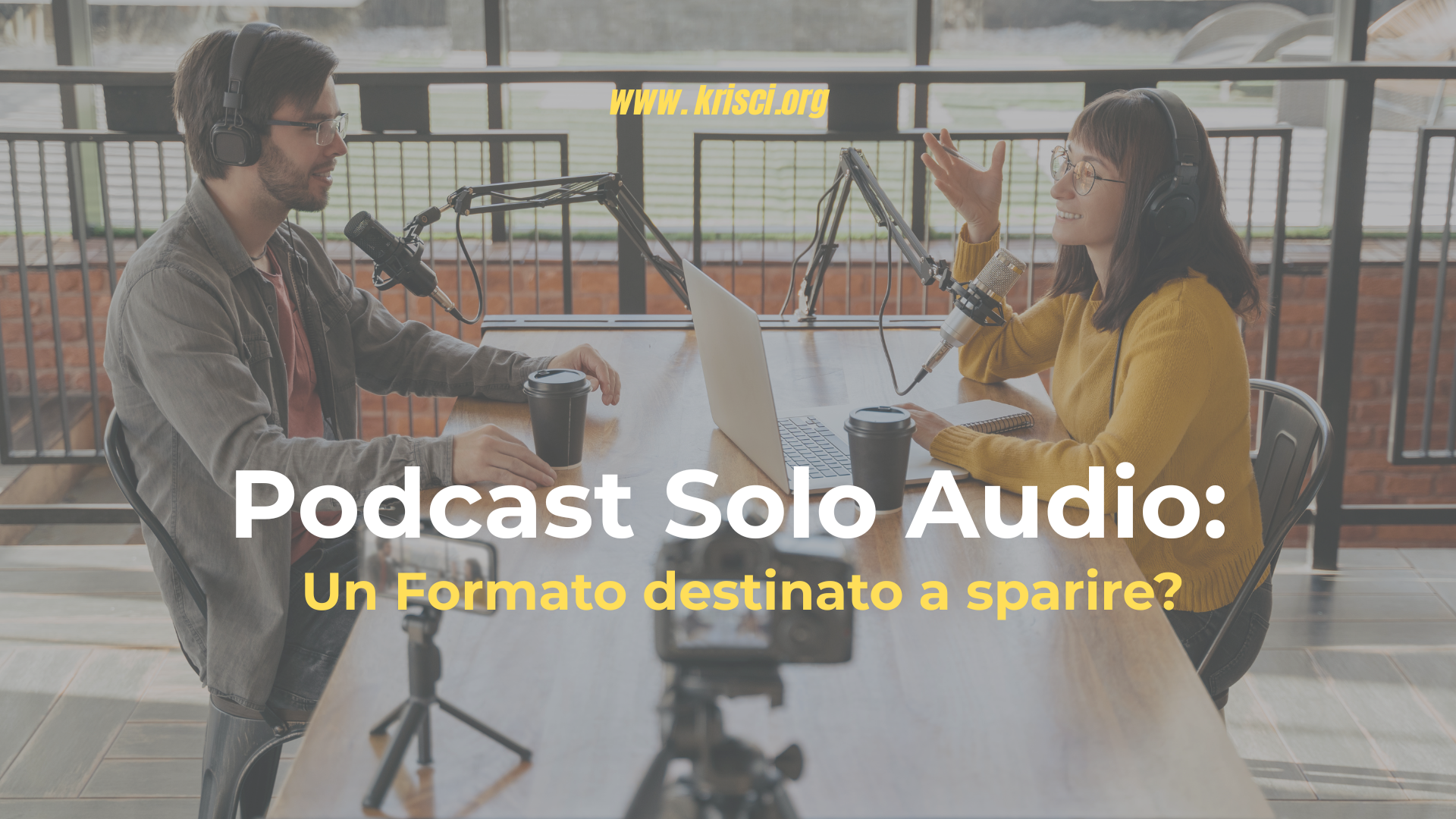The numbers from the new report The Infinite Dial 2025 seem to say it loud and clear: the podcast has become an audiovisual product.
But the question many are asking β especially those working in marketing, communication, or branded content β is:
Β
π does it still make sense to produce podcasts only in audio format? Or is video the only possible future?
π The data: the video revolution is real
Let's start with the numbers, which never lie:
73% of listeners consume podcasts also in video.
YouTube is now the most used platform for listening to podcasts (33%), surpassing Spotify (26%) and Apple Podcasts (14%).
158 million Americans listen to (or watch) podcasts every month.
And again: 48% of users say they listen and watch, while only 22% listen without ever watching.
The "video-only" format (watching without listening) concerns a niche: only 3%.
ποΈ Is audio podcasting dead? Absolutely not. But...
The exponential growth of video in the podcast world does not mean that pure audio is destined to disappear.
But it is undeniable that its role is changing.
Audio-only remains:
the most intimate format, ideal for listening on the go, in headphones, in the car, or while doing sports.
an accessible entry point for beginners, both in terms of budget and production.
the best choice for deep, reflective, narrative content, where the gaze is not necessary.
BUT... if a company wants today to amplify reach and engagement, video is no longer an option, but an almost indispensable complement.
π The battle is not audio vs video. It's deep vs superficial.
What emerges from the data is not just a change of format, but of consumption and expectations:
The audience is looking for faces, emotions, environments.
They want to see who is speaking, read expressions, feel part of the scene.
But at the same time, they still want to listen in silence, without being distracted by a screen.
The future, therefore, is not the death of audio-only, but its strategic integration into a cross-media system.
πΌ What should brands do?
Create well-structured audio podcasts, but also designed for video (with setting, lighting, suitable format).
Distribute on multiple platforms: Spotify, Apple Podcasts, but also YouTube.
Segment content: maybe an audio-only narrative series + video clips for social media + interviews on YouTube.
Enhance audio in the "invisible" moments of consumers' day: car, commuting, routine.
π§ Conclusion: audio-only persists, but must evolve
In 2025, audio-only podcasts do not disappear, but can no longer be the only format.
Those working in communication, branded content, or audio journalism must think multi-format, multi-platform, multi-channel.
π§ The future belongs to those who can tell stories well, with voice, with images, with soul.
Β
π The important thing is not just what you tell. But how, where, and in what form.
Want to create a strategic podcast for your brandβaudio, video, or both?
Letβs talk. ποΈ
Data source: The Infinite Dial 2025 - Edison Research




